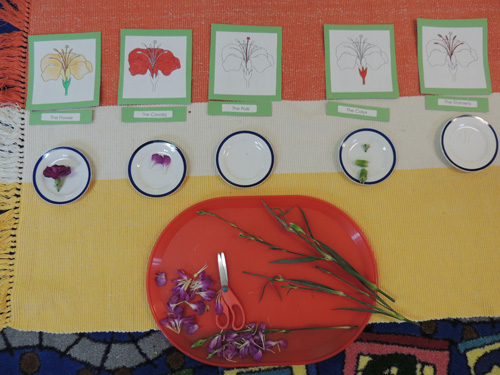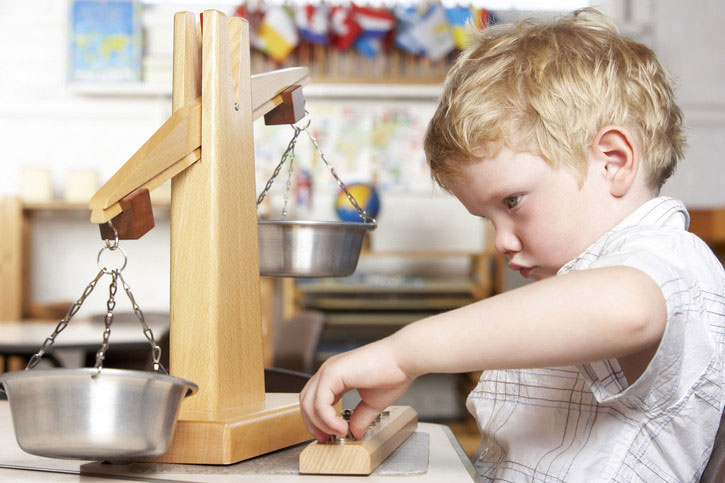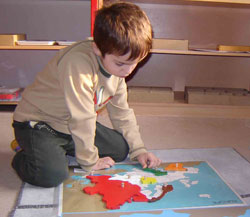 The flower arranging activity is a good example of the direct and indirect delivery system of the Montessori philosophy. On one level it is a creative and satisfying work. It also leads to work in the language, science, and art areas over the course of the three year primary program. Continue reading
The flower arranging activity is a good example of the direct and indirect delivery system of the Montessori philosophy. On one level it is a creative and satisfying work. It also leads to work in the language, science, and art areas over the course of the three year primary program. Continue reading
Blog
What does “Normalization” really mean
 The first 4 to 6 weeks are usually a period of transition during which the children become familiar with the routine of getting to school on time and accustomed to the pace and expectations of the school day. Their ability to cope will look different at each age. At any point during this time it is common for a child who appears to have settled in comfortably to suddenly express feelings of resistance to going to school. This is a phenomenon teachers often refer to as ‘the end of the honeymoon period’. Continue reading
The first 4 to 6 weeks are usually a period of transition during which the children become familiar with the routine of getting to school on time and accustomed to the pace and expectations of the school day. Their ability to cope will look different at each age. At any point during this time it is common for a child who appears to have settled in comfortably to suddenly express feelings of resistance to going to school. This is a phenomenon teachers often refer to as ‘the end of the honeymoon period’. Continue reading
Debunking 5 Myths of Montessori
 When parents hear the term Montessori they normally have some idea of what it means or what Montessori Education is about. However, all too often, many parents develop misconceptions about the method when receiving information handed down from sources outside their Montessori school. This may be why many myths regarding the method arise. Continue reading
When parents hear the term Montessori they normally have some idea of what it means or what Montessori Education is about. However, all too often, many parents develop misconceptions about the method when receiving information handed down from sources outside their Montessori school. This may be why many myths regarding the method arise. Continue reading
Foster independence in your child
 It is sometimes difficult to allow your child to make the mistakes it takes to master a task at hand. All too often it is more work to clean up after your child has “helped” rather than just doing the task yourself. However, it is important to do your best to let your child try and complete any activity they are engaged in. Children have the will; it’s just the skill that’s needs improvement. By disrupting your child’s work you may inadvertently give them the signal that they are not good enough. Positive self esteem and independent thought are nurtured by positive experiences to actions in the child’s world. Continue reading
It is sometimes difficult to allow your child to make the mistakes it takes to master a task at hand. All too often it is more work to clean up after your child has “helped” rather than just doing the task yourself. However, it is important to do your best to let your child try and complete any activity they are engaged in. Children have the will; it’s just the skill that’s needs improvement. By disrupting your child’s work you may inadvertently give them the signal that they are not good enough. Positive self esteem and independent thought are nurtured by positive experiences to actions in the child’s world. Continue reading
